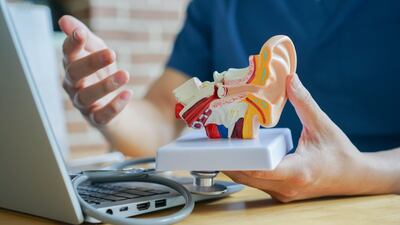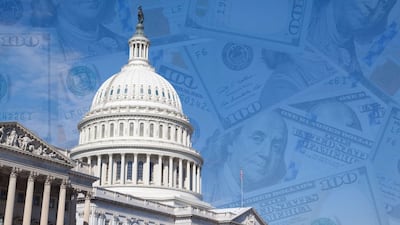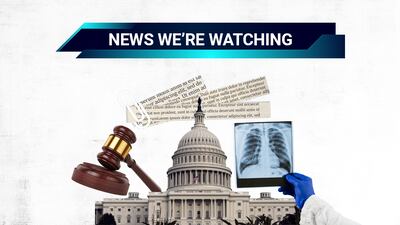Legislation
Children with biliary atresia (BA) exhibited neurodevelopmental deficits and increased autism traits, with earlier surgery linked to better general neurodevelopment.
Multi-cancer diagnostics can help get oncology patients the treatment they need more quickly, but lack of reimbursement has kept such tests out of reach for many patients. Bills providing coverage have passed or are under consideration in more than half of the states and have been introduced in both houses of US Congress.
A government report requested by US lawmakers Debbie Dingell and Anna Eshoo to review the FDA’s postmarket surveillance of medical devices stresses that strengthening the system is critical to addressing adverse events linked to devices after they hit the market.
A bipartisan bill now in the US Senate seeks to change the classification of implantable hearing aid devices to allow Medicare to reimburse for the devices, potentially expanding access for many Americans who require them.
While the National Electrical Manufacturers Association supports the Biden Administration’s plan to impose tariffs on a range of Chinese goods coming into the US, it also supports holding off on their implantation.
In June, the US Supreme Court reversed the Chevron doctrine, a long-standing precedent requiring courts to defer to regulatory agencies when statutory language was ambiguous. But will that decision prevent the FDA’s final rule on laboratory developed tests from taking effect? A legal expert weighs in.
The US FDA has created a web page with answers to common questions concerning the agency’s final rule on regulating laboratory developed tests as medical devices.
A fiscal 2025 report from the US House Appropriations Committee instructs the FDA to halt implementation of its overhaul of LDT regulation. Members also showed concern about overseas device manufacturing and the availability of over-the-counter diagnostics.
The House Appropriations Agriculture, Rural Development, and FDA Subcommittee advanced the FDA’s fiscal year 2025 funding bill, beginning a likely long and difficult budget cycle.
Old habits die hard when it comes to funding the FDA. When the agency is doing things well, it doesn’t get the money it needs to keep up the momentum.
A new round of tariffs imposed by the Biden administration on various Chinese goods, including medical devices, points to a broader shift in US strategy for strengthening supply chains and ensuring Americans have reliable access to safe products, according to analysts who spoke to Medtech Insight about the tariffs. While fueled by the pandemic, the momentum pushing this change in trade policy has been growing for some time.
The Kentucky Republican says the final rule is an overreach by the FDA and will harm patient access to crucial diagnostics, as well as slowing innovation in the sector.
Virtual care leaders at Providence and Sanford Health shared successes and challenges in implementing remote monitoring and telehealth programs during a panel discussion at the recent Reuters Digital Health conference in San Diego.
This week, a House subcommittee advanced a two-year telehealth extension, Chuck Schumer and a bipartisan group of senators introduced a plan for regulating AI, the FDA launched its new online RST Catalog, NIH recommends targeted radiotherapy cancer treatment, and Oura announced new health features for its smart ring.
Now that the US FDA has published its final rule regulating lab developed tests, litigation challenging the rule and the FDA’s authority to enact it is sure to follow. And the central argument will likely focus on whether the tests are defined as medical devices, which the agency regulates without question.
AdvaMed is hopeful that legislation at the US federal and state levels will temper third-party litigation funding, which is wreaking havoc on the judiciary system and fostering mistrust of medical devices, it says.
In this month’s Digital Health Roundup, Medtech Insight’s Marion Webb highlights key interviews with Philips’ CEO Roy Jakobs on NAM’s framework on AI, BD’s CTO Beth McCombs R&D initiatives and HSS spine co-chair Sheeraz Qureshi on his vision for integrating AI tech. Hannah Daniel discusses the FDA’s new initiative to create an idea lab for medical device use at home and a new feature on the Apple Watch to help people with Parkinson's disease overcome freezing gait.
After much anticipation, the US FDA is set to publish its controversial final rule for regulating laboratory developed tests, which places the tests under the same regulatory purview as other in vitro diagnostics. While the agency opted to include an exemption for LDTs already on the market, it did not provide an exemption for tests developed in academic medical centers.
Philips CEO Roy Jakobs talks to Medtech Insight about the medtech firm’s decade-long history of embedding AI into its products and what he expects from the newly released draft framework by the National Academy of Medicine, which he helped develop as co-chair of the Steering Committee.
The US FDA wants to ban devices that use an electrical shock to stop aggressive behavior. The agency attempted to ban the devices in 2020 but failed after it was challenged in court.




















